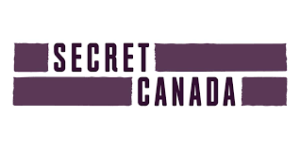Updated 25 March 2024
Last summer the Globe and Mail ran a series of important articles about the failure of Canada’s freedom of information legislation to provide meaningful information to the public. While this issue is endemic across provincial and federal governments, the series singled out Alberta’s FOIPP (Freedom of Information and Protection of Privacy) system as being especially vexatious.  Specifically, The Globe initially sought basic information about the tracking system requests for “data fields from each ministry’s FOI tracking system, such as when requests were received and completed and whether any information was provided.” The Alberta government, unlike every other jurisdiction in Canada, denied The Globe’s requests, claiming “no records” existed – even though the province uses a tracking system. This initial request was rejected for a second time in a decision which the former Alberta Information Commissioner Jill Clayton termed “really frustrating and tremendously disappointing.” Clayton retired in 2022 and it appears that the silent treatment for FOIPP requesters has descended like the wildfire ash over Alberta government transparency.
Specifically, The Globe initially sought basic information about the tracking system requests for “data fields from each ministry’s FOI tracking system, such as when requests were received and completed and whether any information was provided.” The Alberta government, unlike every other jurisdiction in Canada, denied The Globe’s requests, claiming “no records” existed – even though the province uses a tracking system. This initial request was rejected for a second time in a decision which the former Alberta Information Commissioner Jill Clayton termed “really frustrating and tremendously disappointing.” Clayton retired in 2022 and it appears that the silent treatment for FOIPP requesters has descended like the wildfire ash over Alberta government transparency.
More recently, Charles Rusnell reported in the Tyee on his difficulties obtaining usable information from a November 2023 request for letters and emails to Premier Danielle Smith concerning the province’s move to establish an Alberta Pension Plan (APP).
Attempts by some Alberta journalists to use FOIP to gain full access to internal government information about how citizens feel about the proposed pension plan and how the government chose to respond to that input have largely failed. Charles Rusnell

Rusnell filed a request to gauge the mood of Albertans reacting to the APP proposals announced by the Smith government on 21 September 2023. According to Rusnell he wanted to “see if the government, even in its private correspondence with individual Albertans, would be truthful with them or if it would continue the political spin,” a fair inquiry from a respected journalist.
Freedom of Information and Protection of Privacy Act (FOIPPA)
The legislation was originally intended to shed light on government policy-making and decision-making, as a check against the abuse of authority by government notably between elections. In Division 1 of the Act which deals with obtaining access to information, there exists a “duty” to assist applicants and time limits for responding to requests, which may be extended.
Despite the positive duty to assist, the hype about the promise of FOIPP and the independence of the information watchdog soon gave way to the weight of bureaucratic decision-making and the exemptions under the Act. Box A lists the most common exemptions used by the civil servants and their masters to keep legitimate information out of the hands of independent journalists and members of the public.
|
Box A Freedom of Information and Protection of Privacy Act, (FOIPPA) RSA, 2000 , Chapter F-25 Division 2 of the Act sets pout the exceptions to disclosing information. These exceptions include: · Disclosure harmful to business interests of a third party (section 16); · Disclosure harmful to personal privacy (17), · Disclosure harmful to individual or public safety (18); · Confidential evaluations (19); · Disclosure harmful to law enforcement (20); · Disclosure harmful to intergovernmental relations (21); · Cabinet and Treasury Board confidences (22); · Local public body confidences (23); and · Advice from officials (24); · Disclosure harmful to economic and other interests of a public body (25); · Testing procedures, tests and audits (26); · Privileged information (27); · Disclosure harmful to the conservation of heritage sites; (28) and · Information that is or will be available to the public (29). |
On the surface, these exceptions seem fair and reasonable. Obviously, one does not want personal, commercial, or privileged information released, cause harm to public safety, nor want to jeopardize intergovernmental relations or the fairness of school examinations. However, there is considerable administrative and political discretion which results in a perversion of what proponents hoped to be “open government.”
Other barriers
Under section 93 of Alberta’s FOIPPA, the government is entitled to charge a fee to applicants. The legislation provides a process for the applicant to be given an estimate of fees, typically for wide searches, that must not exceed the costs of obtaining the information. Exceptions can be made by the deputy minister or head of a provincial agency if the applicant “cannot afford the payment or for any other reason it is fair to excuse payment, or (b) the record relates to a matter of public interest, including the environment or public health or safety” (emphasis added).
According to Rusnell’s article, costs arising from requests by journalists for materials deemed to be in the public interest are routinely granted full or partial fee waivers. In Rusnell’s case even though information on the APP is obviously in the public interest, he was told to file a request for a fee waiver. In requesting records of phone calls to the Premier’s office, instead of staff emails or a report. he received a six page listing of calls date stamped and a column showing for and against. Of the 275 calls recorded, only 17 were labelled as supportive.
In another request for records of letters and emails, Treasury Board and Finance initially assessed a processing fee of $3,611 for 11,700 pages of records. The records from 1 January 2023 to 30 April 2023 were waived (because the Smith government had grown silent on the issue) but records after the election was called to the date of request in November 2023 were not to receive a fee waiver.
The only plausible explanation was that the ministry didn’t wish to provide the records that would reveal the extent of the public’s opposition to the pension plan, even after the government’s publicly funded marketing campaign and panel town halls, and after the Premier misled the electorate about her plans for an APP.

Had there been overwhelming support, I am certain the records would have been provided and free of charge.
So by assessing a large fee and refusing to waive it except for a period that will yield mostly irrelevant documents, the ministry has effectively ensured critical information on a major policy will never be made public. Charles Rusnell
A final barrier is the time it takes for receiving the information or receiving answers from the Information Commissioner’s office when there is an appeal.
My FOIPP requests
I took a different approach to seeking information about the Alberta Pension Plan. I sought records from Treasury Board and Finance, the department charged by both Kenney and Smith with investigating the feasibility of an APP. I hoped to ascertain what advice the permanent, non-partisan public service gave to ministers (Travis Toews and Nate Horner) respecting the Fair Deal Panel ‘s recommendation on an APP.
After discussions with the ministry FOIPP staff, I reduced the requests to cover three divisions within the ministry and the time period from the Fair Deal report was provided to the government. I submitted two requests: (1) specifically related to the engagement panel and the (2) a more general request pertaining to the creation of an Alberta Pension Plan. (See correspondence below).Acknowledgement Letter - TF000-2023-G-41
TF000-2023-G-41 Extension Letter TF000-2023-G-41 RecordsAt the outset, I told the staff that I knew this file was politically sensitive. There was feedback that the volume of information would result in additional fees but I pushed back emphasizing the public interest and was successful. The TFG staff was professional throughout. Both requests which were filed by the end of November 2023 required extensions. The engagement panel request filed on 10 November 2023 was extended once and finally received on 6 January 2024. A second request was extended twice and was received on 18 March, four months after the original request (for details see forthcoming post). The total cost was $25 per application.
What I learned
The engagement panel request generated a 44-page PDF see above). Of the 44 pages, 25 pages were unredacted. These unredacted pages included the panel’s terms of reference, the Ministerial order establishing the Engagement Panel, the contract with one of the panelists Professor Moin Yahya, and a contract between the Government and Critical Point Communications for services, including writing the final report. Six pages were partially redacted and 13 pages were fully redacted.
As my quest was to ascertain whether public servants provided objective, non-partisan advice I was disappointed that section 24(1)(a) – advice, proposals, recommendations, analyses or policy options developed by or for a public body or a member of the Executive Council- was utilized 11 times to withhold information that is in the public interest.
With the withholding of officials’ advice the public does not know if the Alberta public service provided balanced information to their political masters. Or did the advice provided consist of advice the politicians wanted to hear? Sadly, we may never know.
This issue becomes more important in Part 2 where I examine the broader issue of the Alberta Pension Plan not simply the engagement panel. In the case of the panel a more fulsome disclosure might shed insight into whether senior officials offered suggestions for non-political appointments who were better versed in actuarial science, pension fund administration and investment management. Another issue where non-partisan input would have been helpful would have been in the terms of reference. The terms of reference restrict the panel to expert advice from Lifeworks and they do not have the powers to hear from other expert witnesses. The lack of access to other experts is enormously important given the magnitude of the funds involved and the potential impact on Albertans’ retirement security.
In the records received it is not possible to know the number of pages that were redacted in this FOIPP request because 4 of the fully redacted pages do not disclose the actual number of pages redacted. It merely says “0-0 pages.”
Other grounds for redaction or partial redaction are shown in the table below
| Number of pages | Section of Act | Wording of Act |
| 4 | 17(1) | The head of a public body must refuse to disclose personal information to an applicant if the disclosure would be an information to an applicant if the disclosure would be an unreasonable invasion of a third party’s personal privacy. |
| 1 | 20(1)(m) | Harm the security of any property or system, including a building, a vehicle, a computer system or a communications building, a vehicle, a computer system or a communications system |
| 11 | 24 (a) (1)
|
Advice, proposals, recommendations, analyses or policy options developed by or for a public body or a member of the Executive Council, |
| 2 | 24(1)(e) | Contents of draft legislation, regulations and orders of members of the Exec. Council or the Lieutenant Governor in Council |
| At least 4 pages | 27(1)(a) | Legal privilege, including solicitor client privilege or parliamentary privilege |
Section 17(1) was used four times presumably used to shield the public from gleaning personal information about the three panelists- Jim Dinning, Mary Ritchie and Moin Yahya. Unredacted Pages 20-23 are Moin Yahya’s contract following by three pages partly redacted for the panelists’ acceptance of their appointment. A key aspect of acceptance of the engagement is a duty to keep “confidential information in the strictest confidence.” Section 3(1) (d) requires the panel member to “forward any requests by any person for access to any Confidential Information to the Province and have no further dealing with that person in respect of that request without the express prior written consent of the Province (emphasis added).
Section 8 of the agreement states:
Return of Documents Upon your completion of the Permitted Purpose, or upon the written request of the Province at any time, you will at the direction of the Province return to the Province or destroy (together with proof of destruction, if requested by the Province) all paper and electronic copies of all records and information in any form that comprise or contain any of the Confidential Information that are in your possession or control, including all Confidential Information stored on or with any data storage media or service.



We can only assume the conditions apply to the other two panelists Jim Dinning and Mary RItchie. While these conditions are certainly not unheard of in private sector contracting (the infamous NDA- Non-Disclosure Agreement), they place needless restrictions on a member’s capacity to dialogue with members of the public in an open and transparent way. This requirement makes it very difficult to introduce information which the department has provided which might be contrary to the information supplied in the $7-million public engagement process.
Section 20(1)(m) is invoked just once in this document and relates to harm of government property. It is used redact an email from the Deputy Minister and Superintendent of Insurance and Pensions to the ministry’s senior financial officer and a policy manager in the Deputy Minister’s office. With the subject redacted and the content wholly redacted it is unclear what harm to property might be caused by the appointment of an engagement panel.
|
Box B- Dramatis Personae David Mulyk, Executive Director. Pension Policy, Treasury Board and Finance (TBF) Mark Brisson, ADM- Financial Sector Regulation and Policy, Chris McLeod- currently Director, Economic Analysis and Modelling Unit. Jobs, Economy and Trade Catherine Rothrock- Executive Director- Economics. Fiscal Policy and Economics, TBF Timothy Jobs, currently Director. Strategic Program and Operations, Technology and Innovation Mark Parsons, ADM, Fiscal Policy and Economics, TBF (now ATB Financial’s Chief Economist) Lois Stewart- Director, Pension Policy, Pension Policy, TBF Haripaul Pannu, Deputy Superintendent of Pensions, Employment Pensions, TBF Dana Hogemann, Assistant Deputy Minister and Senior Financial Officer, TBF Sharon Lopatka, Chief of Staff, Deputy Minister’s Office, TBF Kathleen Macaspac Director, Economic Forecasting and Analysis, Economic Forecasting and Analysis, TBF Margaret Mansell, Barrister and Solicitor, Central Services, Justice Scott Chen, Barrister and Solicitor, Central Services, Justice Tara Dahl, Director Pension Policy, Pension Policy, TBF Jason Waywood, Executive Director, Policy, Statistics and Analytics, TBF Kerstin Bzdel, Senior Manager, Federal-Provincial Fiscal Relations, Policy, Statistics and Analytics, TBF John Karagoulis, Manager, Pension Policy, Pension Policy, TBF Vanessa Sands, Pension Policy Advisor, Pension Policy, TBF Bryce Selzler, Senior Policy Advisor, Office of the President of Treasury Board & Minister of Finance Lynda Baker, Assistant to the Controller, Office of the Controller, TBF Paul Lebane, Assistant Deputy Minister, Economics and Fiscal Policy, Economics and Fiscal Policy Division, TBF Aimee Charest, Issues Manager, Economics and Fiscal Policy Division, TBF Samson Swan, Manager, Strategic Policy and Legislation, Office of the Deputy Minister, TBF Kate White, Deputy Minister Treasury and Finance Jess Robertson, Chief of Staff, Office of the Minister, TBF Lauren Walsh, Assistant Communications Director, TBF, Communications and Public Engagement, Government of Alberta Kathy Morin, Communications Director, Communications, TBF |
Section 24(1)(e) is a shield to protect the confidentiality of legislation, regulations and orders in council. In the first case (at page 7) we have no idea what the subject matter for the use of this exception is. We also don’t know how many pages this redaction consists of. On this page, another exception is provided for “legal privilege.” In the second case of its use, this complete redaction gives no information as to the length of the document and is also married with “legal privilege.” With such a blanket exemption the public does not know how this relates to the use of the engagement panel or broader legislative or regulatory issues, such as the drafting of the ministerial order establishing the panel.
Criticality of a vital independent media
Rusnell’s article in the Tyee is an excellent example of independent journalism providing important information that is typically not reported in mainstream media sources like The Globe and Mail and Alberta-based Postmedia publications. The internet has spurred on the creation of many “alternative media” websites which critically pursue the actions of governments. The Tyee an important source of information about Alberta politics with reporting from David Climenhagen and Graham Thomson, among others. The National Observer, a Vancouver based digital publications broke the important story about the Alberta Energy Regulator’s underestimate of environmental liabilities. Other independent voices include Progress Alberta , Jeremy Appel’s The Orchard, and Dave Cournoyer’s informative Daveberta.
Without financial support from members of the public, these critical voices will not be able to provide stories that only the mainstream media can pick up to try to inform a broader public and to inform public debate. Sadly, given my experience and others concerning FOIPP, even powerful media outlets like The Globe and Mail are unable to advance political discourse on the chronic problem of government secrecy.
The bottom line? This government and most Canadian governments have little or no interest in assisting researchers to parse through complex policy issues like the Alberta Pension Plan. Furthermore, this government and most Canadian governments have little or no interest in improving transparency about how policy and decisions are made. In the end governments are thwarting informed discourse about issues which deeply affect the public interest.
Related Posts
Alberta Pension Plan- conversation with retired professors at UofA
And my recent Parkland Institute blog